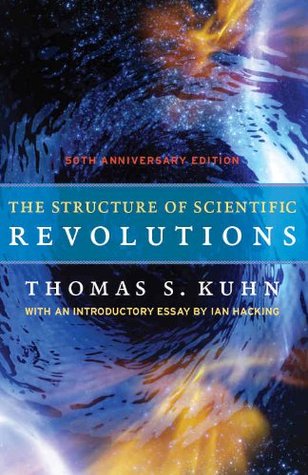Communication across the revolutionary divide is inevitably partial. Consider, for another example, the men who called Copernicus mad because he proclaimed that the earth moved. They were not either just wrong or quite wrong. Part of what they meant by ‘earth’ was fixed position. Their earth, at least, could not be moved. Correspondingly, Copernicus’ innovation was not simply to move the earth. Rather, it was a whole new way of regarding the problems of physics and astronomy, one that necessarily changed the meaning of both ‘earth’ and ‘motion.’
Welcome back. Just a moment while we sign you in to your Goodreads account.


